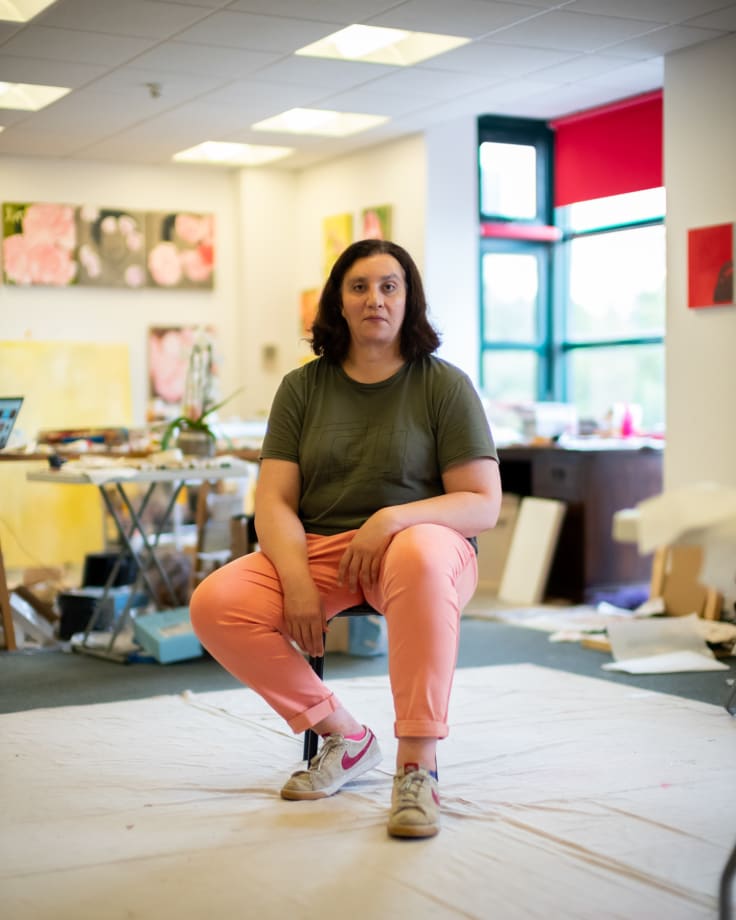Victoria Cantons British, b. 1969
"We are not just the clothed person we present to the world. We have many faces. We are defined by our response to experience and our relationship with each other and by language, and yet we are also unique individuals."
– Victoria Cantons
Victoria Cantons (b. 1969 London) has always been aware of limitations and stigma, holding memories of being different from the outset. As an artist who happens to be a woman and transgender, Cantons feels that having been perceived to be a man and now recognised as a woman has given her a rare perspective. A question that has always fascinated is how much freedom does she have? There’s something about the temporary versus the eternal in her work as she explores the human condition and social identity, both of which are central concerns in her work.
Cantons approaches these themes in a multidisciplinary practice and produces work filtered by desire, loss, the passage of time, presence and absence, and language. Cantons writes: "We are not just the clothed person we present to the world. We have many faces. We are defined by our response to experience and our relationship with each other and by language, and yet we are also unique individuals.” Whilst the work is positioned as an enquiry, Canton’s style emerges through process, emotion, and intuition. Quoting Rose Wylie, she says that how the work looks is important, but meaning–politics, issues, story, and so on–is part of the structure of making a work, an act which is both personal and contemporary.
Cantons is a BA Painting graduate of Wimbledon College of Arts, UAL, (2017) and Turps Art School (2018). She received the Felix Slade Scholarship in 2018, and completed her MFA in Painting at Slade School of Fine Art, UCL, in 2021. She previously studied Drama for the Stage and Screen at the Academy of Live and Recorded Arts (ALRA South, 1995-97). Cantons lives and works in London. She featured in White Cube Gallery’s Tomorrow London group show (2020) and as one of six artists to watch in the Financial Times’s How To Spend it Magazine (May 2021).



